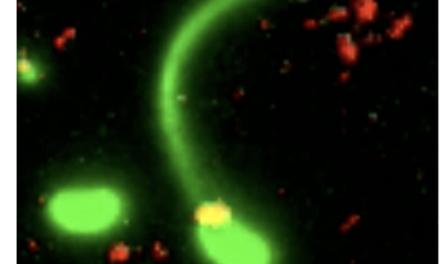Nancy Sajben, MD, forwards a snarky story from The Guardian that asserts, “The main psychoactive ingredient in marijuana makes lab rats lazy, according to University of British Columbia researchers.”
The UBC authors’ paper, “Δ9-Tetrahydrocannabinol decreases willingness to exert cognitive effort in male rats,” was published in The Journal of Psychiatry and Neuroscience August 23. Though based on a very small study (29 rats) we expect it to propel the “Slacker Effect” into the realm of Established Fact, along with 8-Point IQ Loss. Here’s the abstract:
Background: Acceptance of cannabis use is growing. However, prolonged use is associated with diminished psychosocial outcomes, potentially mediated by drug-induced cognitive impairments. Δ9-Tetrahydrocannabinol (THC) is the main psychoactive ingredient in cannabis, yet other phytocannabinoids in the plant, such as cannabidiol (CBD), have unique properties. Given that CBD can modulate the undesirable effects of THC, therapeutic agents, such as nabiximols, contain higher CBD:THC ratios than illicit marijuana. We tested the hypothesis that THC impairs a relevant cognitive function for long-term success, namely willingness to exert cognitive effort for greater rewards, and that CBD could attenuate such decision-making impairments.Methods: Male Long–Evans rats (n= 29) performing the rat cognitive effort task (rCET) received acute THC and CBD, independently and concurrently, in addition to other cannabinoids. Rats chose between 2 options differing in reward magnitude, but also in the cognitive effort (attentional load) required to obtain them.Results: We found that THC decreased choice of hard trials without impairing the animals’ ability to accurately completethem. Strikingly, this impairment was correlated with CB1 receptor density in the medial prefrontal cortex — an area previously impli-cated in effortful decision-making. In contrast, CBD did not affect choice. Coadministration of 1:1 CBD:THC matching that in nabixi-mols modestly attenuated the deleterious effects of THC in “slacker” rats.Limitations: Only male rats were investigated, and the THC/CBD coadministration experiment was carried out in a subset of individuals.Conclusion: These findings confirm that THC, but not CBD, selectively impairs decision-making involving cognitive effort costs. However, coadministration of CBD only partially ameliorates such THC-induced dysfunction
Lead author Mario Silveira has a masters degree in psychology; none of the co-authors are MDs. Someday Silveira et al might ingest some thought-inducing Cannabis, look around the lab, and ask, “Why are we wasting our precious time and taxpayers’ money making tenuous, imperfect analogies between the effect of these molecules on rodents and their effects on homo sapiens? What is the point of our projections?” Realizing that there is no point, they might slack off a bit. Not entirely, of course, because they need the rewards doled out at the grocery store in exchange for their performing pointless experiments.
The Toronto Globe and Mail account of the UBC study by Camille Bains leads with a shocking distinction between “pot’s medicinal component” and “the intoxicating part of cannabis” —CBD and THC, respectively— as if THC was of no medical value. (The Globe and Mail is like the New York Times of Canada —considered authoritative.) A reporter who didn’t understand that THC has medical value should not have been assigned to write this story. An editor should have caught the serious gaffe in its first paragraph.
Deep down in the story Bains quotes someone who knows what she’s talking about:
Jennifer Collett, who owns a medical marijuana clinic in Peterborough, Ont., where she works as a complimentary (sic) health-care provider, challenged the study’s assertion that pot use causes laziness.
“I don’t see any laziness in any of my patients, that’s the one thing I can say. That really is a myth.”
Even at the Globe and Mail, alas, the spell-checker has made the copyeditor obsolete. For the record, complimentary means flattering and complementary means adjunctive. Jennifer Collett is both… Why do I take the trouble to note this? I must not have enough THC in my system! —Fred Gardner
PS: Here’s a silly song on the subject .




